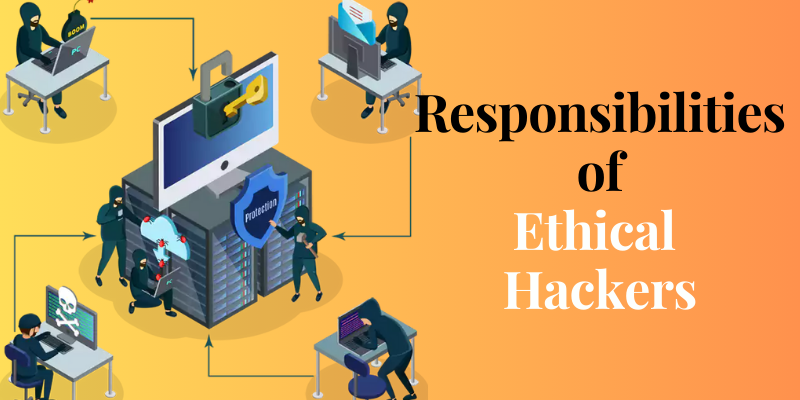In an era dominated by digital connectivity, ethical hackers, also known as white hat hackers, have become increasingly crucial. These cybersecurity professionals are pivotal in safeguarding digital assets, identifying vulnerabilities, and fortifying defences against potential cyber threats. For individuals aspiring to contribute to this essential field, undertaking an Ethical Hacking Course In Bangalore is a strategic step toward acquiring the necessary skills and knowledge. In this blog, we’ll unveil the critical responsibilities of ethical hackers and shed light on their indispensable role in maintaining a secure digital landscape.
Critical Responsibilities of Ethical Hackers
- Vulnerability Assessment:
Ethical hackers are tasked with performing thorough vulnerability assessments. Identifying and analyzing potential flaws in computer systems, networks, and applications. Ethical hackers help to develop robust security measures by systematically evaluating vulnerabilities.
- Penetration Testing:
Penetration testing, a cornerstone of ethical hacking, involves simulating real-world cyber-attacks to evaluate the effectiveness of existing security controls. Ethical hackers use their skills to identify and exploit vulnerabilities, providing organizations valuable information about their security posture.
- Security Audits:
Ethical hackers conduct extensive security audits to review and evaluate an organization’s security policies, configurations, and access controls. This ensures that security practices follow industry standards, compliance requirements, and best practices.
- Incident Response Planning:
Ethical hackers actively contribute to incident response planning. By anticipating potential security incidents and crafting effective response strategies, they play a crucial role in minimizing the impact of security breaches and ensuring a swift and organized response. Enrolling in the Ethical Hacking Training In Marathahalli equips individuals with the skills and expertise to contribute significantly to incident response planning.
- Continuous Monitoring:
The digital landscape is dynamic and constantly changing. Ethical hackers constantly monitor, detect, and respond to emerging threats. This proactive approach assists businesses in staying ahead of potential risks and vulnerabilities.
- Security Awareness Training:
Educating employees on best security practices is a critical responsibility of ethical hackers. They reduce the human factor in security vulnerabilities by conducting security awareness training, which enables employees to recognize and respond effectively to potential security threats.
- Compliance Monitoring:
Ethical hackers make sure that organizations follow cybersecurity regulations and standards. Monitoring compliance with data protection laws, industry-specific regulations, and other legal requirements to protect sensitive data falls under this category.
Ethical hackers bear a multifaceted responsibility in fortifying cybersecurity. Their role extends beyond technical expertise to ethical conduct, collaboration, and a commitment to the greater good of digital security. Enrolling in comprehensive training programs at the Best Software Training Institute In Bangalore equips these professionals with the diverse skills required to excel in this critical field.
Also, check Ethical Hacker Salary For Freshers



